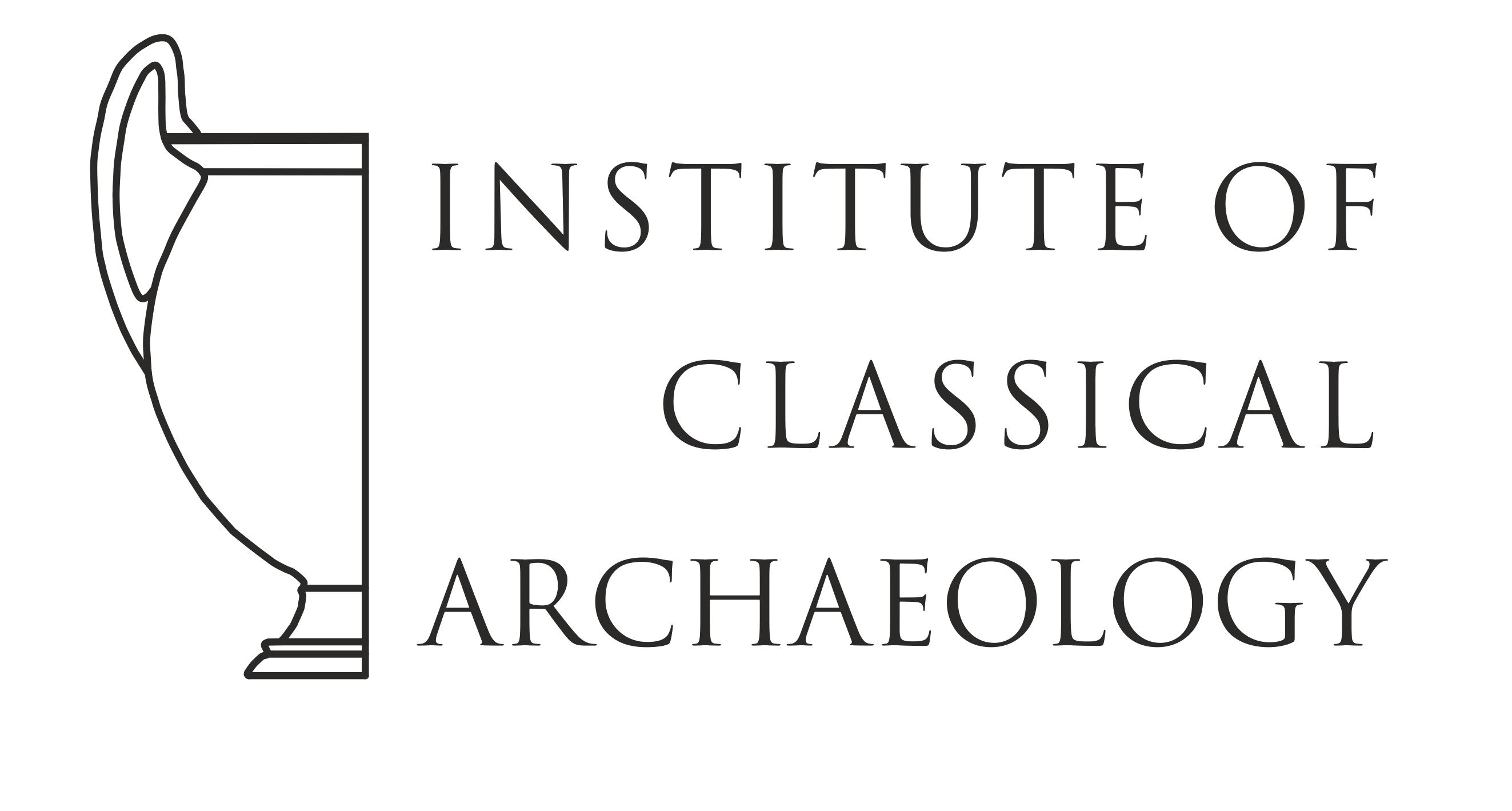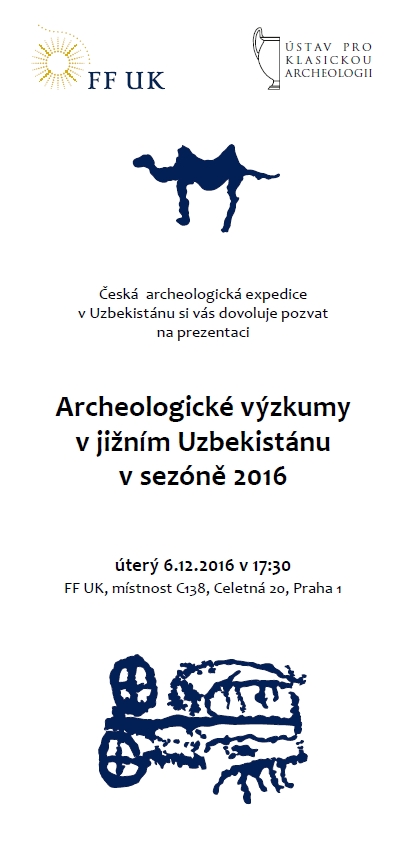Dear Erasmus students,
You are welcome to study at our Institute for Classical Archaeology! For any questions regarding your stay at the Institute please contact Petra Tušlová (petra.tuslova@ff.cuni.cz) and for the administration of your stay the Faculty of Arts Erasmus coordinator for incoming students Andrea Čapková (andrea.capkova@ff.cuni.cz).
Basic information about Erasmus at Prague you may find at the following link: ERASMUS
Please note, that most of our classes are taught in Czech, although we offer every semester at least one course in English and individual consultation all year long.
Classes
Winter semester 2017-2018
Mediterranean and Central Europe in the Bronze and Iron Ages (AKAV00044)
by Jan Kysela and Peter Pavúk
The course description
The course presents a historically (and mostly) archaeologically based general overview of our knowledge on Transalpine Europe in the first millennium BC with principal focus on the instances of interaction between Central Europe and Mediterranean occurring throughout the studied period. We will analyse the available (Greco-Roman) written sources on the Transalpine world, present the principal categories of imported objects, study the situations of mutual interaction and influence between the two cultural areas and analyse the broad phenomena of cultural transformation in which the contact of the two worlds (is supposed to have) had its share (e.g the Hallstatt culture princely graves, Celtic art, Late La Tène oppida).
Classes:
1) Introduction – Mediterranean and central Europe; archaeology of intercultural contacts
2) The Aegean Bronze Age and Central Europe
3) The Urnfield culture and the beginnings of the Iron Age
4) Early Iron Age: Etruria, Este, Golasecca – Hallstatt and the Eastern Alps, the Situla Art
5–6) Late Hallstatt period – Etruscans in the Po valley and Greeks in Massilia, princely graves and princely residences:
Hochdorf, Heuneburg, Vix…
7) Early La Tène Period: new art, new society; the Celts
8) Early to Middle La Tène period – Celtic art, Celtic expansions, the Celts in Italy
9) Celts in the Balkans, in Greece, and Anatolia; Celts in Greek and Roman art; Celtic mercenaries
10) Third to second century BC: transformation of Celtic society – coins, glass and agglomerations
11) late La Tène Period: oppida, amphorae and late La Tène art
12) end of the Celtic world – Caesar, Burebista, and Romanisation
13) Germans and Romans – the first centuries AD in central Europe.
Consultations
Besides the classes individual consultations on specialized topics are possible. For the list of the academic staff of ICAR, their specialization and the possible language of communication see the following list. The mother language of all of the staff is either Czech or Slovak.
More information are to be found on our institute's webpage: http://ukar.ff.cuni.cz/en/node/130
Peter Pavúk
Main areas of interest
- Aegean, Balkan and Anatolian Bronze Age
- Ceramic studies (typology, chronology and provenance)
- Archaeology of Troy
- Early Iron Age Aegean and Western Anatolia
- Postcolonial archaeology and Hybridisation
Languages
- Fluent in English and German; communication level of Russian
Jan Kysela
Main areas of interest
- Italy of pre-Roman/pre-Augustan period
- Iron Age in Central and Western Europe
- Western Mediterranean during the 1st mil. BC
Languages
- Fluent in English, Italian and French; communication level of German
Jiří Musil
Main areas of interest
- Roman Militaria
- Roman Provinces
- Barbaricum
Languages
- Fluent in German
Ladislav Stančo
Main areas of interest
- Archaeology of Central Asia
- Near East in Antiquity
- Greek archaeology of the Hellenistic period
Languages
- Fluent in English, Russian and communication level in German and Polish
Petra Tušlová
Main areas of interest
- Balkan archaeology of the Roman period
- Roman pottery studies
- Greek and Roman transport amphorae
- Field Survey and GIS
Languages
- Fluent in English; communication level of Spanish and Bulgarian
Marek Verčík
Main areas of interest
- Archaeology of Greece and Western Turkey from the Early Iron Age to Alexander the Great
- Iron Age Macedonia and Epirus
- Warfare in the Ancient world
- Archaeology of “colonization” and cultural contacts in the Mediterranean during the 1st half of the 1st mil. BC
Languages
- Fluent in English and German




